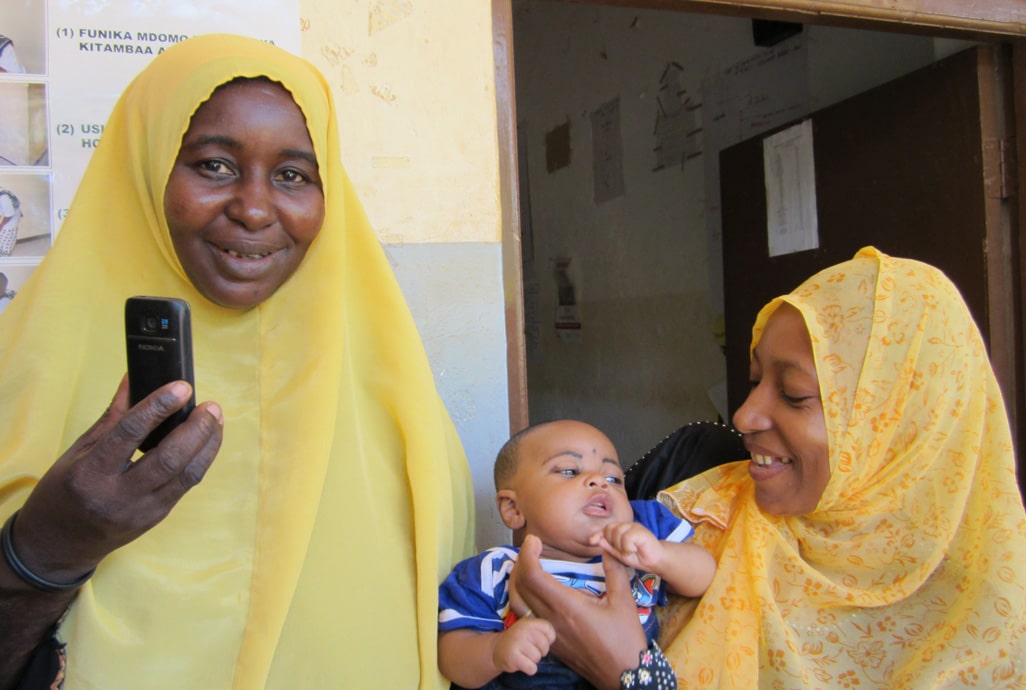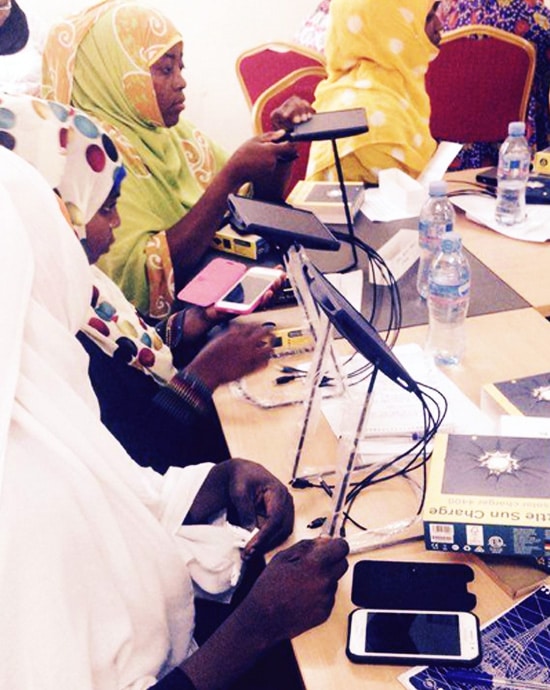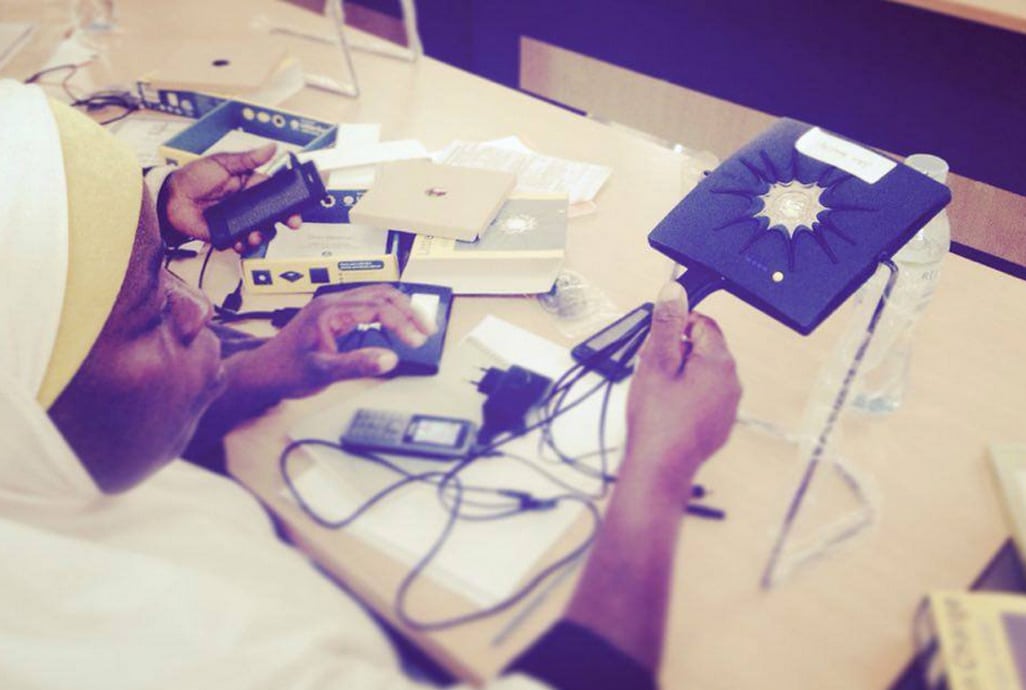
Working with D-tree International in off-grid areas of Tanzania, we are powering the future of healthcare, particularly mHealth, with the energy of the sun.
By supporting community health workers with our solar-powered phone charger Little Sun Charge, better healthcare and more accurate diagnoses are becoming a reality for communities living beyond the electrical grid.
One key part of this work that we are extremely proud of is being the ‘first light’ for many babies being delivered in these areas. What an honour for Little Sun to be the first source of light and energy that these tiny human beings will experience in their lives!
“About half of the community here have electricity at home and the other half do not, including me. The charger has really helped me to charge my phone and keep in contact with people, especially my pregnant women who can call me anytime as I rarely let the battery die out,” says Staha Abass Mkanga-Uzini, Community Health Worker.
Providing safe and reliable healthcare is crucial for protecting and empowering people living without electricity, particularly women and girls. In solidarity with this, Olafur donated his grant from #YokoOno‘s LennonOno prize to the Maternity Foundation.
Read on for more insight into D-tree International and how solar is changing the future of mHeath.

Every individual, no matter who they are or where they live has a right to safe, effective, affordable health care. Unfortunately, for many people this right is only an illusion due to limited access and poor quality of care, shortages of trained health workers and inadequate education about how to stay healthy and where to go when care is needed. There are millions of people around the world who may never see a doctor in their lifetime.
Mobile devices (phones, tablets) provide significant new opportunities to improve the quantity, quality and breadth of services a health worker can provide, particularly in countries with a severe shortage of doctors and limited resources for training and supervision.
D-tree International is a not-for-profit organization devoted to leveraging the power of technology to transform the way healthcare is delivered. D-tree develops phone based tools that ensure that when a patient is seen by a health worker they get the correct diagnosis, treatment and follow-up support. These mobile applications walk the health worker step-by-step through a visit, supporting accurate decision making and clinical guidance. When conducting a visit, electronic medical records are created which provide longitudinal data to better support clients over time. The applications support health workers to schedule follow-up visits and plan their schedule according to priorities. Supervisory tools link health workers and their supervisors to improve supervision and mentorship, and program dashboards support program managers, such as Ministry of Health officials, to monitor the program in real-time and use data for decision making.

In Tanzania, approximately 50% of pregnant women deliver at home, leading to unacceptably high rates of maternal and neonatal mortality. Women and their families lack access to quality care, tailored counselling and education, and support to develop a birth plan to facilitate a safe delivery. D-tree International is working with partners in Zanzibar and in the Lake Zone (in Northwest Tanzania) to support 850 Community Health Workers (CHW) to conduct home visits with pregnant women in their communities, provide education to the woman and her family, develop birth plans and support linkages to health facilities. Each CHW is trained to use a low-cost Android phone with a mobile application supporting her through these visits. Supervisors at health facilities can review CHW performance to provide tailored support, and program managers view data through a dynamic, online web-based dashboard to monitor and evaluate the program. In Zanzibar, the D-tree supported program increased rates of facility deliveries from under 50% at baseline to 75% during program implementation among more than 14,000 women.
This revolution in technology can only be made possible with access to energy. Only 15% of the population in Tanzania is connected to the national electricity grid (EnDev 2016), making it extremely difficult for health workers to charge their phones on a regular basis. This is particularly the case in remote rural areas where most CHWs are living off-grid. The power crisis is not limited to off-grid areas as there are frequent power outages across Africa. The lack of electricity only adds to the daily struggle of these health workers and limits their ability to access the decision support tools required to support women in their communities if their phones are not consistently charged.
This is part one of a two-part series on the solar future of mHealth. Read part two to experience more of the inspiring work of Community Health Workers.
Photo credit: D-Tree International and Mark Leong WHO.

